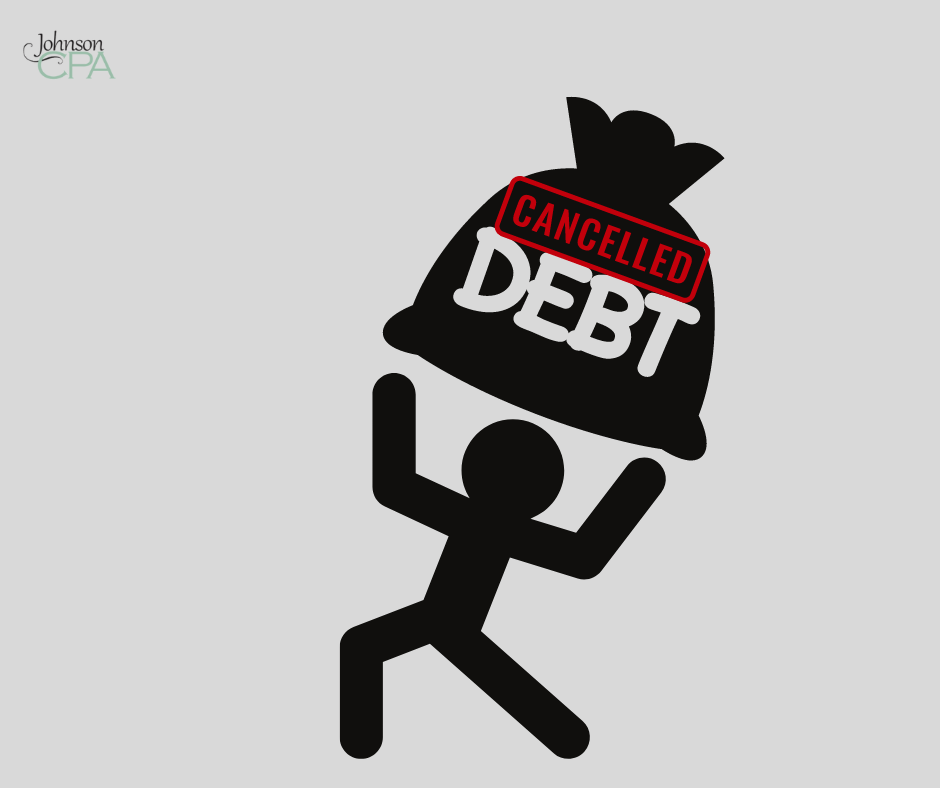Cancelled Debt and Taxable Income
The last few years have hit families hard. If you carry credit card debt or personal loans, you may consider negotiating with your card issuer or lender to have balances cancelled or written off. Did you know that cancelled debt is taxable and must be reported on your income tax return?
Discharge of indebtedness is considered income because it is money that you “used” but then did not have to pay back. Credit card issuers and lenders are required to report the amount of forgiven debt to the IRS using Form 1099-C, Cancellation of Debt.
Here is an example. Let’s say that you have a credit card balance of $20,000. You call the card issuer to negotiate because you cannot keep up with the payments. They forgive or cancel the $20,000 debt in exchange for a one-time payment of $5,000. The amount that you no longer have to repay, $15,000, is taxable income.
As with most tax law, there are exceptions. Not all cancelled debt is taxable. When you file for bankruptcy, any debts that are discharged are not considered taxable income. Also, if you are insolvent (meaning your total debts are more than the value of your total assets), some or all of the debt may not be taxable.
Qualified principal residence debt is another exception. Any mortgage you took out to buy, build, or substantially improve your main residence is qualified principal residence debt. Through 2025, you can generally exclude up to $750,000 if married filing jointly, or $375,000 if married filing separately or single. This exclusion is set to expire at the end of 2025. Qualified principal residence debt reduced through modification or restructuring or cancelled in connection with a foreclosure, also qualifies for this exclusion. If the taxpayer remains in the home, the amount forgiven will reduce the taxpayer’s cost basis in the home.
Honorine Campisi, CPA



